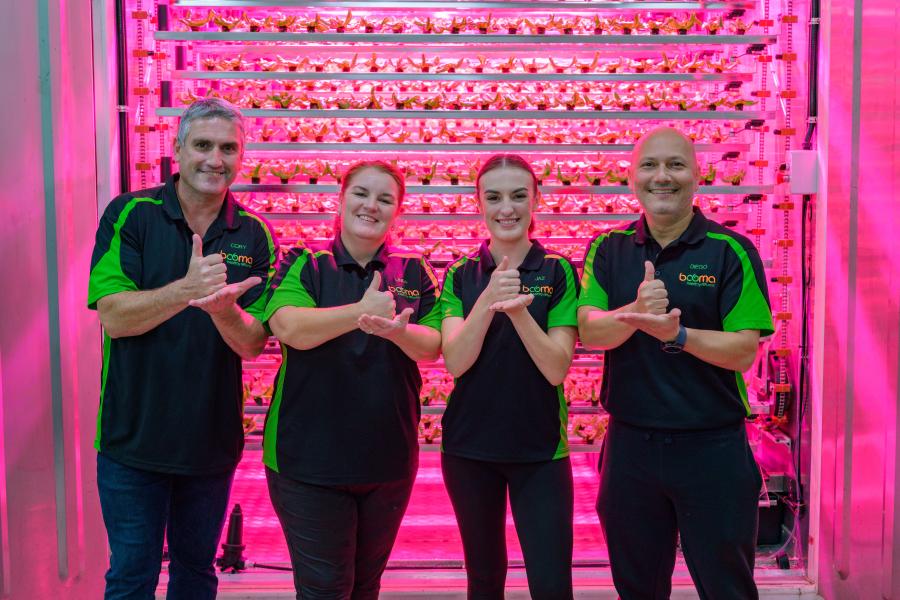Booma Food for a sustainable future

Indigenous-owned producer Booma Food Group is making a major investment in the future of the Hunter region and its fresh food supply, employing an innovative commercial production ecosystem to produce high-quality food year-round.
On its farm in Cessnock, the Australian owned and operated producer grows lettuce, micro-greens, herbs and propagated seedlings in high-tech converted shipping containers. In these controlled environments, nutrients are delivered directly to the plant roots, resulting in faster growth and higher yields without soil.
The CubicFarms containers are fitted out for 'vertical farming', in which plants are grown in stacked rows under artificial light. Temperature, water and humidity are controlled, and no chemicals or pesticides are used. In this environment, Booma Food Group uses 95% less water and 100 times less land than field farming practices, while increasing crop production tenfold.
'This is a lighthouse for modern agriculture,' says founder and CEO Cory Robertson. 'We’re meeting a market for tasty, affordable produce while achieving the highest outcomes for quality and sustainability.'
Robertson says the business is a response to changing markets, a changing climate and the need for agriculture to decarbonise.
'Indoor controlled growing ecosystems like this can operate 24/7, 365 days of the year,' he says. 'That ensures Australian food security, drought and flood resilience, and reliable quality, volumes and cost.'
He is also excited about engaging and energising Hunter communities. Booma Food Group, which is expected to create more than 15 local jobs, provides accredited training and nurtures local talent, including suppliers, 'to flourish in sustainable agricultural practices'.
It also applies First Nations principles such as caring for Country to its business practices and working with local Indigenous and industry groups, CSIRO and University of Newcastle biologists on the propagation of native vegetation for land regeneration.
'We are dedicated to keeping our technology and growing ecosystems in the hands of Aboriginal businesses and people,' says Robertson.
"Taking the ‘farm to the barn’ and powering it with renewable energy means communities in regional and remote areas – places where traditional agricultural practices are risky and costly – can engage in a new way to play."
